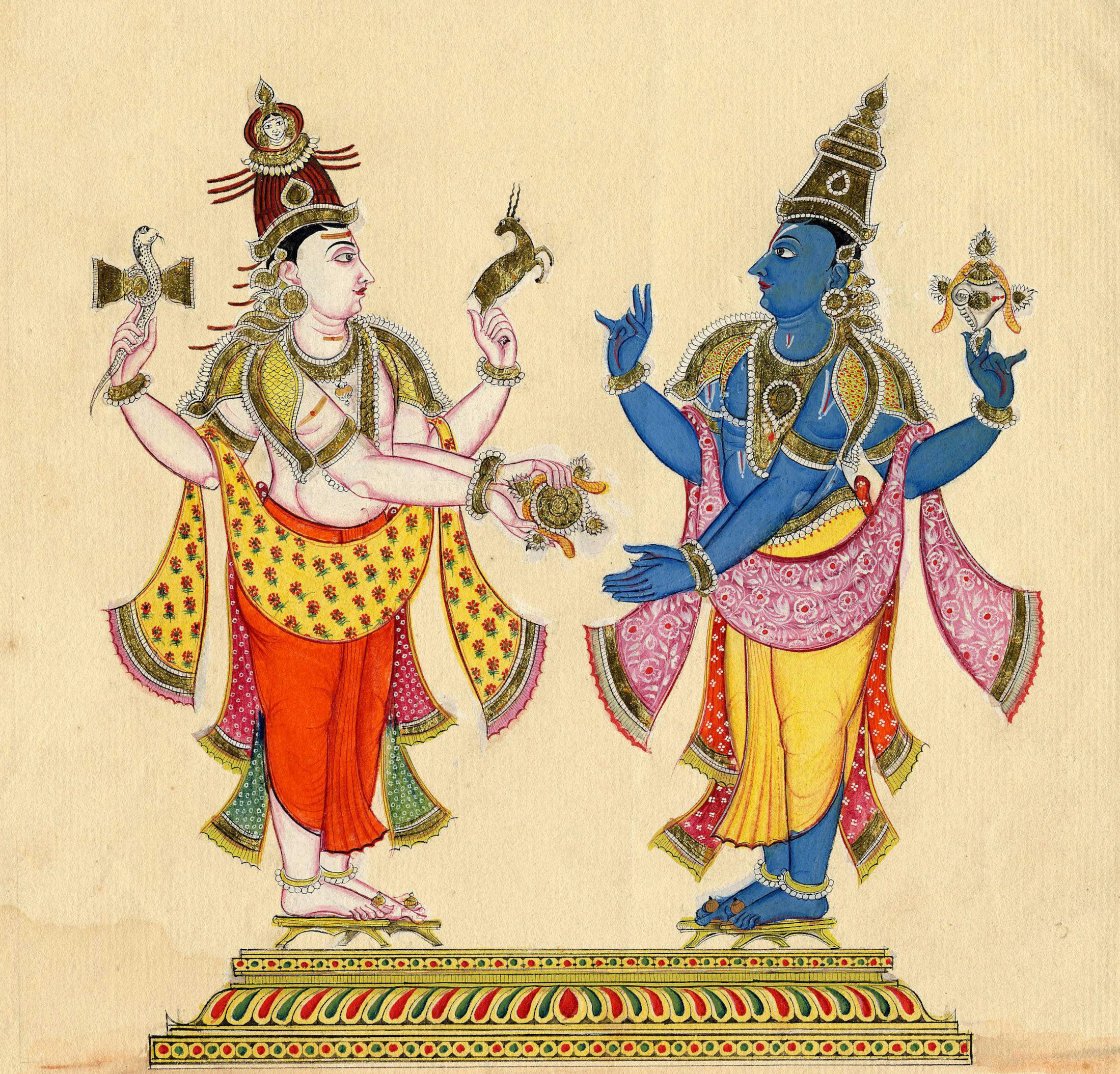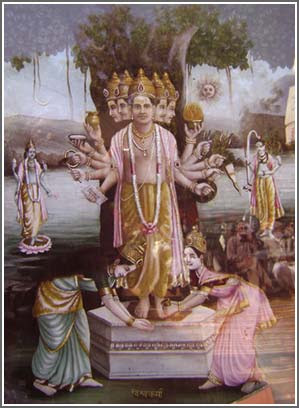Deepawali Photo Essay - Part 2
Deepavali Dyuta Krida
The act of gambling is known in
Hinduism since Vedic period. However, it was known as game of Dyuta and called
Dyuta-Krida (द्यूत-क्रीडा). The board on which it is
played is known as Chaupar and dice are known as Pasha (पाश).
As per religious books, wearing
new clothes after Abhyang Snan on the first day of Kartik month should be
followed by Dyuta Krida and taking Mangal Aarti from female members of the
family.
Elephanta Caves Sculpture. Shiva cheats at the game of Dice and Parvati
sulks affectionately.
This attitude of Parvati is called
Sanskutimana.
The Legend:
It is believed that the game of
dice was invented by Lord Shiva who had then declared to Goddess Parvati,
"O Devi! I have created the game of dice for passing time, for those who
want to amass sudden wealth and to destroy the wealth of someone".
As per Hindu religious books, it
was the day of Kartik Pratipada when Lord Shiva and Goddess Parvati played the
game of dice the very first time. Before they began to play, says one version
of the myth, Parvati and Shiva were one, the androgyne, Ardhanarisvara. Narada,
a sage, visited them and enticed them to play by telling them, “the game of
dice has many forms—and the two of you are likely to find it more pleasing than
making love”

Ardhanarishwara
Parvati takes the dice and begins
to play, after she separates herself from Shiva so that they become two
different players.

And so the
fragmentation begins. Shiva, usually
reluctantly at first, begins to play; then they become entirely absorbed in the
game and both of them begin to cheat and play in tricky ways. At first Shiva beats Parvati, and she gets
angrier and angrier. This makes her more
beautiful to Shiva, so he keeps playing. But then more is wagered and Shiva
loses everything—all of his attributes to her.
Parvati demands what he has wagered but Shiva reneges.

Shiva & Parvati playing dice – Ellora cave 21
“Shiva merely smiled at this
point and said something true: ‘I wasn’t really beaten by you, dearest; look at
things from the right perspective. No
living being can ever overcome me. You
shouldn’t talk like this”.
Lord Shiva and Goddess Parvati playing Chaupar
A quarrel thus ensues because
Shiva has reneged on his pledge and refused to pay, let alone even acknowledge
that he lost. Shiva having lost all that he possesses and humiliated by his
defeat, gets up and walks off to avoid further argument. He goes into the cedar
forest leaving Parvati all alone.

The Wandering Ascetic Shiva
Here Shiva wanders around and meets Vishnu who feels sorry for him and offers to
help:
“Play another game. This time I promise you will win,” he tells
Shiva. And that is exactly what happens.

Shiva and Vishnu
Shiva wins back all that he had lost in his
earlier games, even his loincloth. Parvati, suspicious of Shiva’s sudden success, calls him a cheat.

Parvati Chides Shiva
Shiva outraged by the accusation,
demands an apology. Words are exchanged,
insults are hurled…
To pacify them both, Vishnu
appears on the scene and reveals to Parvati the secret of Shiva’s victories.

Vishnu tells Parvati the secret of Shiva's victory
“My spirit entered the dice. The dice moved not according to your play but
my wish. So neither has Shiva really won
nor have you really lost. The game was
an illusion; your quarrel is thus, a product of delusion.”
On hearing Vishnu, Parvati and
Shiva realize that life is like their game of dice—totally unpredictable and
beyond control. They say, “Let the gods
bless all who play dice on this day and realize this cosmic truth.”
  
This day is celebrated as Diwali,
the festival of lights.
Many people believe erroneously
that it is auspicious to gamble on Diwali night. Actually, none of the Hindu
Scriptures mention gambling on the night of Diwali. However, most of them do suggest
playing Dyuta on the day of Kartik Pratipada.
The day after Diwali is also the day to worship Vishwakarma. Vishvakarma was the divine architect, and one of the fourteen precious treasures that appeared out of the Samudra Manthan (the churning of the ocean to gain Amrita, the nectar of immortality). ![[vishwakarma__the_divine_architect_we52.jpg]](https://blogger.googleusercontent.com/img/b/R29vZ2xl/AVvXsEiG7R1B0x9fA1qaHEuu1Q0R3GIMy5ZwatwrNU8VLl_y9KsEI3h4WwiTU2dk_4OzVyvH9WK8V9pZyJMsjLlO0PA_Am1LiJHpcgL91g_ft5apowVkYCKHdwtSrYVjJhfHIVL0IF4k_xR4F2A/s1600/vishwakarma__the_divine_architect_we52.jpg)
Vishwakarma

Lord Vishwakarma, Ghat Ki Guni, Jaipur
Vishwakarmaconstructed the holy city of
Dwarka where Lord Krishna ruled, The Maya Sabha of the Pandavas and was
the creator of many fabulous weapons for the gods. This day is often
used by manufacturers to pray for their equipment so that it works well
and makes profit during the year ahead.
Panchamukhi Vishwakarma
Some Other Diwali Traditions
On the orders of Bharata, the
people of Ayodhya cleaned their houses and placed oil lamps (diyas) to light
the path of the Pushpaka Vimana that brought Rama back from Lanka.
Hindus clean their house before
Diwali. They whitewash, renovate and decorate their houses with flowers and
rangolis. It is thought that Lakshmi, the goddess of wealth and prosperity arrives
in a clean and inviting house.

At night, traditional Diyas and candles are lit.
Some believe that Lakshmi will be better able to find her way into well-lit homes.

Women often set diyas
afloat on a river, especially Ganga during Diwali. If the light makes it to the other side of the river, this
is taken as a sign of good luck.

Driving out Alakshmi: Alakshmi is considered the goddess of bad
luck, poverty, and misfortune, so she has to be driven out from the houses. This
ritual is generally done by the oldest woman of the house.

Lakshmi and Daridra(Alakshmi)
  | |||||||||||
Thursday, 23 October 2014
Subscribe to:
Post Comments (Atom)
1 comment:
आदरणीय दीपमजी,धन्यवाद.हम आपके कृतज्ञ हैं.एक साथ,एक जगह,दीपावली के पर्व से जुड़ी जानकारी ही नहीं,उसमें छिपा ज्ञान हमें मिला.ईश्वर का अनुग्रह,भगवान की कृपा आप पर सदैव बनी रहे. लक्ष्मीनारायण बैजल.
Post a Comment